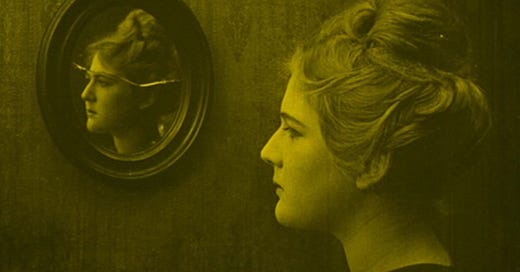Kathleen on Lois Weber's Social Commentary from 100 Years Ago
WELCOME TO SOUL TELEGRAM: MOVIES & MEANING - a weekly newsletter by Kathleen Norris and Gareth Higgins exploring how cinema helps us understand our lives, expand our horizons, and live better. Each week Kathleen or Gareth writes an essay about a movie, a filmmaker, or a theme arising in cinema; accompanied by a sketch of three things one of us is thinking about these days. We hope to encourage meaningful reflection on familiar movies, and to introduce works of surpassing beauty, wisdom, and provocation that aren’t so well known. Ultimately we want to nurture a good conversation about life and art, and we’re glad you’re here. Please do join the conversation by commenting on these pieces, and if you like what we’re doing, please share with others - thank you friends.
Kathleen Norris on LOIS WEBER’S SOCIAL COMMENTARY FROM A HUNDRED YEARS AGO
In the 16 April issue I discussed Lois Weber, a pioneer filmmaker who in the early 20th century was the most popular and best-paid director in Hollywood, but who is little-known today. One of the reasons she was “forgotten with a vengeance” is her insistence on dealing with uncomfortable social issues. Like later Italian ”Neo-Realist” directors (Vittorio de Sica, The Bicycle Thief, Rossellini Rome, Open City) who emerged after World War II, Weber faced criticism for rubbing the public’s noses in things they would rather forget, such as poverty and the evil effects of class distinctions. Weber’s focus on women trapped by unfair wage structures makes her work seem contemporary; but audiences in the 1920’s began to prefer escapist entertainment.
Keep reading with a 7-day free trial
Subscribe to Kathleen Norris & Gareth Higgins - Soul Telegram to keep reading this post and get 7 days of free access to the full post archives.




